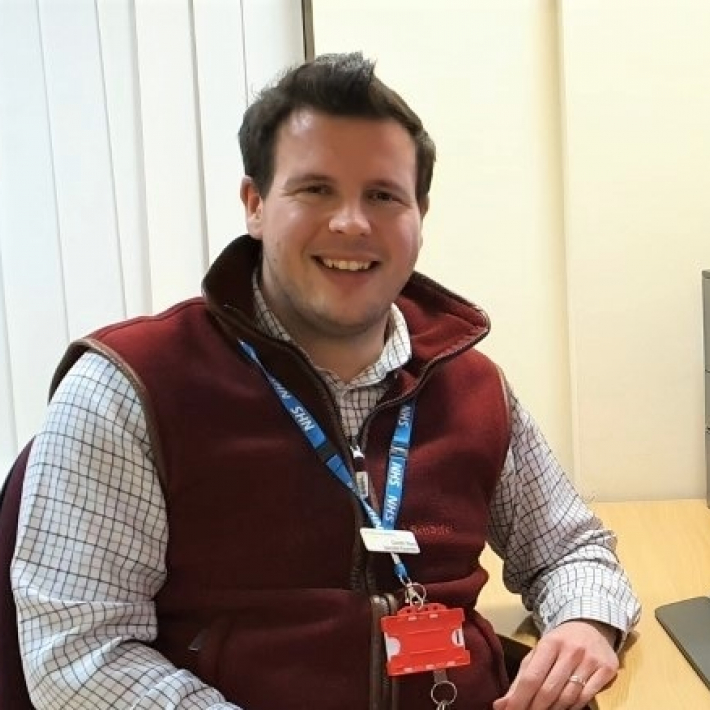"Every day is a learning day and I am fortunate enough to work with some excellent and knowledgeable clinicians."
Gareth started his career as a support worker many years ago. Fast-forward to now, he’s doing an advanced clinical practitioner Master’s degree apprenticeship.
Gareth Ward
Trainee advanced paramedic / trainee advanced clinical practitioner

-
I began my career as a support worker working with adults with learning difficulties. I’ve always wanted to be a paramedic from an early age and knew it would be good to gain some life experience.
I went to Bournemouth University and got my foundation degree in paramedic science in 2011. I worked in Bournemouth for a few years in various roles, then moved to Wiltshire to further my career and spent a few years working as a Lead paramedic.
After that I took an emergency practitioner module at the University of the South West. As part of this, I did a placement in a GP practice. I really enjoyed the variety and responsibility this brought. I then started working at a local GP centre, and then started my advanced clinical practitioner apprenticeship at Master’s level.
-
A typical day involves seeing 30 patients in 12.5-minute slots for same day appointments. Working at an advanced practice level allows me to request different pathology and radiology requests to see the patient journey through. I can also make referral to specialities so it’s really exciting to see if your working diagnosis was correct! I haven’t done the prescribing element of my course yet, which means the GPs have to sign all my scripts.
There’s a myth about paramedics in primary care [1] being a glorified house visiting service. But with proper training, we can be an essential part of the team as we are very dynamic and manage risk well. I was the first paramedic to be employed at the GP practice where I did my placement, and I managed to champion the role. Now there are three of us!
-
The apprenticeship gives me protected study time which fits in well with my busy home life (twins and a 1-year-old!) and it also allows me protected time to spend time with other specialities.
I am most proud of the fact that with dyslexia, I am still able to pass modules at Master’s level and I am in a position where I am championing the role of paramedic within primary care [1]. Every day is a learning day and I am fortunate enough to work with some excellent and knowledgeable clinicians.
There is high patient demand, with high expectations from patients too. Sometimes it can be challenging to do an in-depth assessment in 12.5-minutes, especially for patients with acute presentations that may need admission. Whilst you are looking after a patient in that sort of situation, your list of other patients to see gets longer!
-
My two main hobbies are playing drums and football though I am better at the drums than football! I go to a CrossFit class which is vital for burning off any stress at the end of my working day. To maintain a healthy work-life balance, I think it’s important to talk, leave work at the door and exercise.
I have recently set up an advanced clinical practitioner network for Wiltshire to enable peer support and training for local people. I am excited to see how it will progress.
-
If you like responsibility, clinical autonomy and learning, this role is for you. We encompass four main advanced practice pillars: leadership, clinical, education and research. Every day is a learning day and you have the opportunity to really make a difference to patients. You are well respected in the clinical team and you can work within primary care [1], secondary care [2] or a bit of both!
You have to be a very effective communicator to take precise medical histories quickly and make quick-thinking decisions. At the same time, it’s important not to fix on a diagnosis without proper investigation and most importantly know your limitations.
Sometimes the 12.5-minute patient slots can be a challenge but it’s important that you treat patients with compassion and utilise active listening skills. It’s also important to accept that working in primary care [1] means not knowing everything and that there are lots of people and specialties to help!
